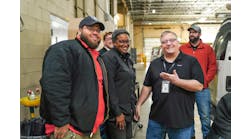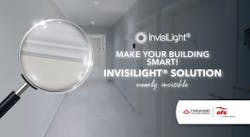Are Youth Ready? Millennials Around the World Weigh In —
A survey conducted by the Pew Research Center showed that only 16% of Americans think that a 4-year degree course prepares students very well for a high-paying job in the modern economy. Ongoing technological change means jobs we do today will probably not be here tomorrow. Additionally, the growing gap between employer needs and what education provides would suggest that ongoing learning is becoming now (more than ever) the norm.
Are today’s youth ready for lifelong learning, and what are their expectations?
According to the 2016 Deloitte Millennial Survey, work/life balance and opportunities to progress are among leading factors (beyond pay and financial benefits) for evaluating job opportunities. Such factors signal an appreciation for lifelong learning within organizations that promote a collaborative work environment. In fact, 76% of millennials prefer a more creative, inclusive culture rather than an authoritarian, rules-based work approach. Millennials globally reported greater work satisfaction that supported positive values, such as: open and free-flowing communication; mutual support and tolerance; and a strong commitment to equality and inclusiveness.
Our Millennial Bloggers are based all over the world. They are innovators in entrepreneurship, journalism, education, entertainment, and academic scholarship. So naturally we asked them to weigh in.
InvisiLight® Solution for Deploying Fiber
April 2, 2022Go to Market Faster. Speed up Network Deployment
April 2, 2022Episode 10: Fiber Optic Closure Specs Explained…
April 1, 2022Food for Thought from Our 2022 ICT Visionaries
April 1, 2022"Millenials embrace many of the taboos of the past because they have engaged in a form of life-long learning not available to previous generations," writes Jacob Navarrete. "‘That’s just how we do it’ doesn’t hold up in a learning-driven world with open sourced information. Learning helps us to answer why. It gives us the opportunity to check our starting points. See what we think of the world and our place in it."
"Millennials everywhere are undoubtedly more tolerant and informed than the generations before them. Their beliefs and attitudes however depend much more on the environments they are brought up and educated in than in their generational ties," writes Sajia Darwish.
"Millennials are all about relationships — ones that are built on trust, communication, collaboration, and commonalities," writes Isadora Baum. "Being experimental and adventurous in today’s age is the best way to master success and growth, encouraging employees to engage in lifelong learning."
"I’d like to move some boulders in my career — and not the Sisyphean type. But I’d prefer to do it around people with a sense of humor, and the spark of wit that connects a process and a product to the human experience on the other end," writes James Kernochan. "The sum total of all the above is, alas, hard to find."
"Diversity allows us to have a variety of perspectives that encourages innovation, and a stimulating work environment that resembles the globalized world we live in today," writes Bonnie Chiu.
"Although formal education and degrees are crucial ways to gain knowledge, I strongly believe learning can be found in most experiences, interactions, and jobs. That being said, there are definitely some job prospects and organizations that lend themselves more easily to personal growth and development," says Kamna Kathuria.
"The measurement of achievement is important data to understanding how students can improve their work and how schools can improve their instruction," writes Francisco Hernandez in his exclusive interview with blended learning expert Michael Horn.
"Traits like creativity, intelligence, curiosity etc. are innate, we often unlearn them as we grow older through society’s rules and dogmas," writes Alusine Barrie.
Like this Article?
Subscribe to ISE magazine and start receiving your FREE monthly copy today!
"‘We are all born lifelong learners’ and that it is never too late to awaken that innate blessing. Never stifle a child’s curiosity. Encourage children to ask questions. Give them many opportunities to learn and help them find answers to their most bizarre curiosities. That way, they may grow to become strong lifelong learners."
"We need, if we are to ‘be the change we want to see,’ to start by reclaiming the power of uncertainty and reveling in everything we do not know today, with the (sometimes kept, sometimes deferred) intention to learn it tomorrow, and perhaps change our minds about why we do what we do along the way," writes Harmony Siganporia.
Resources:
https://www.pewsocialtrends.org/2016/10/06/5-the-value-of-a-college-education/
About the Author: C.M. Rubin is the author of 2 widely read online series for which she received a 2011 Upton Sinclair award, "The Global Search for Education" and "How Will We Read?" She is also the author of 3 bestselling books, including The Real Alice in Wonderland, is the publisher of CMRubinWorld, and is a Disruptor Foundation Fellow. For more information, please visit https://www.cmrubinworld.com. Follow C.M. Rubin on Twitter: www.twitter.com/@cmrubinworld.








